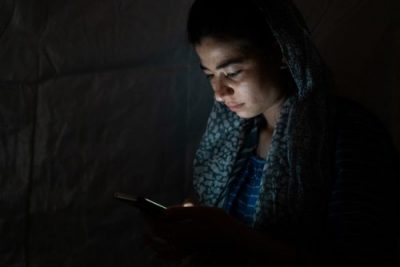![OCTOBER 2022 [PUBLICATION] DIGITALISATION OF THE GREEK ASYLUM PROCEDURE: A WAY INTO THE FUTURE OR A BARRIER TO HUMAN RIGHTS? Slide](http://www.sciencespo.fr/research/migration-diversite/wp-content/plugins/revslider/public/assets/assets/dummy.png)

19/10/2022 [CONFÉRENCE] DIVERSITÉ ET INTÉGRATION DANS L’ESPACE PUBLIC EUROPÉEN
4 octobre 2022
05/12/2022 [CONFÉRENCE THÉÂTRALISÉE] : RIVERAINES – LE DEUXIÈME SPÉCULUM
17 novembre 2022Over the year 2022, MiDi has supported a group of students involved in a Sciences Po’s projet collectif. Meredith MCCAIN, Xenia CHAN, Lara KÜHNLE, Christiana SULLIVAN and Maud BACHELET worked with the Thessaloniki, Greece-based nonprofit, Equal Legal Aid (ELA). The students conducted 20+ interviews with asylum seekers and representatives of 13 organisations working with asylum seekers in Greece. With MiDi’s support, three of the students were also able to undertake a trip to Thessaloniki, Greece and its surrounding areas in order to interview stakeholders on the ground and further elaborate the report with ELA.
The report “Digitalisation of the Greek Asylum Procedure: A way into the future or a barrier to human rights?” (available online) demonstrates how the alleged modernisation of the Greek asylum system is actually making matters worse, primarily for asylum seekers, but also for the organisations dedicated to supporting them. The system as it currently stands has hindered access to the vital procedure which is a necessary prerequisite for legalising the status of those on the move. Through digital means, the Greek government is thus obstructing the right to asylum, the cornerstone of refugee protection.
Digitalisation is often lauded as a stepping stone into the future. Unsurprisingly, many European countries, including Greece, have incrementally digitised government services, including those pertaining to asylum. This means that the initial contact with the Greek Asylum Service (GAS) has to be made digitally (first via Skype, now through an online form), updates about the application are sent via email, and supporting documents must be uploaded on a slow platform which is prone to malfunctions, just to name a few of the aspects that have been digitalised. As a result, communication with the Greek asylum authorities necessitates a digital device, a functioning internet connection and digital literacy: a triad many asylum seekers do not possess.
Irrespective of the fundamental challenges that arise with eliminating many in-person services for the vast majority of asylum seekers, the Greek government has not provided the necessary infrastructure to enable effective and speedy access to asylum procedures. This includes a lack of resources such as printer ink, up-to-date digital software and sufficient personnel for the GAS. Moreover, many asylum seekers lack the necessary tools to navigate the digital asylum process, like access to free wifi, a computer, and digital literacy training.

